INTERNACIONAL
Hungary says it is withdrawing from International Criminal Court as Israeli PM Netanyahu visits country

Hungary is withdrawing from the International Criminal Court (ICC), a move that comes shortly after Israeli Prime Minister Benjamin Netanyahu arrived in the country on Thursday for a visit with Hungarian Prime Minister Viktor Orban.
Netanyahu, who is wanted by the ICC on allegations of war crimes in Gaza, and his wife were greeted on the tarmac by an honor guard and Hungarian Minister of Defense Kristóf Szalay-Bobrovniczky and Israeli Ambassador to Hungary Maya Kadosh.
He is expected to be in Hungary for four days.
Hungary – a founding member of the ICC – is obligated to arrest anyone wanted by the court and turn them over, but Orban has described the warrant for Netanyahu as «brazen, cynical and completely unacceptable.»
WATCH: ISRAELI PM NETANYAHU PUSHES BACK ON ICC CHARGES
Hungary announced it is withdrawing from the International Criminal Court as it is hosting Israeli PM Benjamin Netanyahu, who is wanted by the court for alleged war crimes in Gaza. ( Janos Kummer/Getty Images)
Orban’s Chief of Staff Gergely Gulyas told state media that Hungary would launch its withdrawal process later in the day on Thursday.
The withdrawal doesn’t come as a surprise as Orban questioned the country’s involvement in the ICC in February following President Donald Trump’s decision to impose sanctions on the court’s prosecutor, Karim Khan.
«It’s time for Hungary to review what we’re doing in an international organization that is under U.S. sanctions,» Orban said on X in February.

The International Criminal Court (ICC) issued an arrest warrant for Netanyahu and his former defense chief, Yoav Gallant, last year. (Selman Aksunger/Anadolu via Getty Images)
TRUMP UNVEILS SANCTIONS AGAINST INTERNATIONAL CRIMINAL COURT FOR NETANYAHU ARREST WARRANT
Hungary’s parliament will likely approve the bill to begin the year-long withdrawal process from the ICC since it is controlled by Orban’s Fidesz Party, according to Reuters.
Orban has strongly supported Netanyahu over the years and, in the past, has been quick to block EU statements or actions criticizing Israel.
Israel has rejected the ICC’s accusations, which come after the Jewish State launched a war against Hamas following the terrorist group’s Oct. 7, 2023, attack in southern Israel that left 1,200 dead and more than 250 taken as hostages.
CLICK HERE TO GET THE FOX NEWS APP
When the court issued the warrant for Netanyahu and his former defense chief, Yoav Gallant, it said there was reason to believe both men participated in crimes including murder, persecution and starvation as a weapon of war in Gaza.
According to the Hamas-run Palestinian Ministry of Health, Israel has killed more than 50,000 Palestinians during its attack on Gaza.
Reuters contributed to this report.
INTERNACIONAL
India’s parliament passes bill that would change Muslim land endowments

- India’s parliament passed a controversial bill that amends laws governing Muslim land endowments, known as waqfs, by including non-Muslims on the boards that manage these properties and increasing government oversight.
- The government claims the changes aim to combat corruption and promote diversity, but critics argue it undermines Muslim rights and could lead to the confiscation of historic religious sites.
- Muslim groups and opposition parties have expressed concerns that the bill is politically motivated, and could marginalize Muslims by altering ownership rules and requiring waqf boards to validate property claims.
India’s parliament passed a controversial bill moved by Prime Minister Narendra Modi’s Hindu nationalist government to amend laws governing Muslim land endowments, while Muslim groups and opposition parties protested the move.
The bill would add non-Muslims to boards that manage waqf land endowments and give the government a larger role in validating their land holdings. The government says the changes will help to fight corruption and mismanagement while promoting diversity, but critics fear that it will further undermine the rights of the country’s Muslim minority and could be used to confiscate historic mosques and other property.
The debate was heated in both houses of parliament. The Lower House debated it Wednesday through early Thursday, while in the Upper House, the fiery discussion lasted more than 16 hours into early Friday.
The Congress-led opposition firmly opposed the proposal, calling it unconstitutional and discriminatory against Muslims. Modi’s ruling Bharatiya Janata Party lacks a majority in the Lower House, but its allies helped to pass the bill.
MUSLIMS IN INDIA VOICE CONCERNS THAT NEW CITIZENSHIP LAW COULD FURTHER MARGINALIZE THEM
In the Lower House, 288 members voted for the bill while 232 were against it. Similarly, 128 favored it and 95 voted against it in the Upper House. The bill will now be sent to President Droupadi Murmu for her assent to become law.
Raza Academy members shout slogans in Mumbai, India, to condemn the Waqf amendment bill that was passed early Thursday by the Lower House of India’s parliament, Thursday, April 3, 2025. (AP Photo/Rajanish Kakade)
Minority Affairs Minister Kiren Rijiju introduced the bill to change a 1995 law that set rules for the foundations and set up state-level boards to administer them.
Many Muslim groups, as well as the opposition parties, say the proposal is discriminatory, politically motivated and an attempt by Modi’s ruling party to weaken minority rights.
The bill was first introduced in parliament last year, and opposition leaders have said some of their subsequent proposals for it were ignored. The government has said opposition parties are using rumors to discredit them and block transparency in managing the endowments.
What’s a waqf?
Waqfs are a traditional type of Islamic charitable foundation in which a donor permanently sets aside property — often but not always real estate — for religious or charitable purposes. Waqf properties cannot be sold or transferred.
Waqfs in India control 872,000 properties that cover 405,000 hectares (1 million acres) of land, worth an estimated $14.22 billion. Some of these endowments date back centuries, and many are used for mosques, seminaries, graveyards and orphanages.
Law would change who runs waqfs
In India, waqf property is managed by semi-official boards, one for each state and federally run union territory. The law would require non-Muslims to be appointed to the boards.
Currently, waqf boards are staffed by Muslims, like similar bodies that help administer other religious charities.
During the parliamentary debate, Home Minister Amit Shah said non-Muslims would be included in waqf boards only for administration purposes and to help run the endowments smoothly. He added that they were not there to interfere in religious affairs.
«The (non-Muslim) members will monitor whether the administration is running as per law or not, and whether the donations are being used for what they were intended or not,» he said.
Muslim groups, like The All India Muslim Personal Law Board, said such comments were against the fundamentals of Islamic endowments as such bodies necessarily need to be governed by Muslims only. The board said the bill was «a blatant infringement on the constitutional rights of Muslim citizens» and called on citizens to hit the streets against it.
Mallikarjun Kharge, the Congress president, said, «Why should waqf bodies allow non-Muslims as members when Hindu temple trusts don’t allow people of other religions in their fold?»
One of the most controversial changes is to ownership rules, which could impact historical mosques, shrines, and graveyards, since many such properties lack formal documentation as they were donated without legal records decades, and even centuries, ago.
Questions about title
Other changes could impact mosques on land held in centuries-old waqfs.
Radical Hindu groups have laid claim to several mosques around India, arguing they are built on the ruins of important Hindu temples. Many such cases are pending in courts.
The law would require waqf boards to seek approval from a district level officer to confirm the waqfs’ claims to property.
Critics say that would undermine the board and could lead to Muslims being stripped of their land. It’s not clear how often the boards would be asked to confirm such claims to land.
«The Waqf (Amendment) Bill is a weapon aimed at marginalizing Muslims and usurping their personal laws and property rights,» Rahul Gandhi, the main opposition leader, wrote on social media platform X. He said the bill was an «attack on the Constitution» by the BJP and its allies «aimed at Muslims today but sets a precedent to target other communities in the future.»
INDIA’S RELIGIOUS DIVIDE CONTINUES TO WIDEN BETWEEN MUSLIM, HINDU COMMUNITY
Fears among Muslims
While many Muslims agree that waqfs suffer from corruption, encroachments and poor management, they also fear that the new law could give India’s Hindu nationalist government far greater control over Muslim property, particularly at a time when attacks against minority communities have become more aggressive under Modi, with Muslims often targeted for everything from their food and clothing styles to inter-religious marriages.
Last month, the U.S. Commission on International Religious Freedom said in its annual report that religious freedom conditions in India continued to deteriorate while Modi and his party «propagated hateful rhetoric and disinformation against Muslims and other religious minorities» during last year’s election campaign.
Modi’s government says India is run on democratic principles of equality and no discrimination exists in the country.
Muslims, who are 14% of India’s 1.4 billion population, are the largest minority group in the Hindu-majority nation, but they are also the poorest, a 2013 government survey found.
CLICK HERE TO GET THE FOX NEWS APP
INTERNACIONAL
Experts warn Iran’s nuclear double-talk designed to buy time, undermine US pressure

Senior Iranian officials are threatening to ramp up the country’s nuclear program as the Trump administration weighs a possible strike against the regime if Tehran does not come to the table for negotiations.
«The president should be making the regime sweat, pure and simple,» Behnam Ben Taleblu, an Iran expert and senior fellow at the Foundation for Defense of Democracies, told Fox News Digital.
«This can be done with strict enforcement of maximum pressure sanctions, and a targeted campaign against regime assets in the region – Yemen being a good example now. Washington will also need to add a critical third element to its otherwise economic and military pressure policy. Maximum support for the Iranian people.»
IRAN’S KHAMENEI WARNS OF ‘STRONG BLOW’ AS TRUMP THREATENS TO DROP BOMBS, PUTIN SILENT ON US IRE
An Iranian military truck carries surface-to-air missiles past a portrait of Iran’s Supreme Leader Ayatollah Ali Khamenei during a parade on the occasion of the country’s annual army day on April 18, 2018 in Tehran, Iran. (ATTA KENARE/AFP via Getty Images)
Lisa Daftari, a Middle East expert and editor-in-chief at The Foreign Desk, told Fox News Digital that while diplomacy often demands negotiation, extending any offer to Iran’s regime, even symbolically, risks legitimizing a government that has spent decades terrorizing its own people and funding proxies like Hamas, the Houthis and Hezbollah.
«This regime thrives on defiance, not dialogue. That has not changed. For over four decades, the mullahs have understood only one language: might,» Daftari said.
President Donald Trump told reporters on Air Force One on Thursday that it would be better if the U.S. had direct talks with Iran.
«I think it goes faster, and you can understand the other side a lot better than if you go through intermediaries,» Trump said. «They wanted to use intermediaries. I don’t think that’s necessarily true anymore. I think they’re concerned. I think they feel vulnerable, and I don’t want them to feel that way.»
Trump also threatened to bomb Iran and impose secondary sanctions on Iranian oil if it did not come to the bargaining table over its nuclear program. Although the president said he preferred to make a deal, Trump did not rule out a military option.
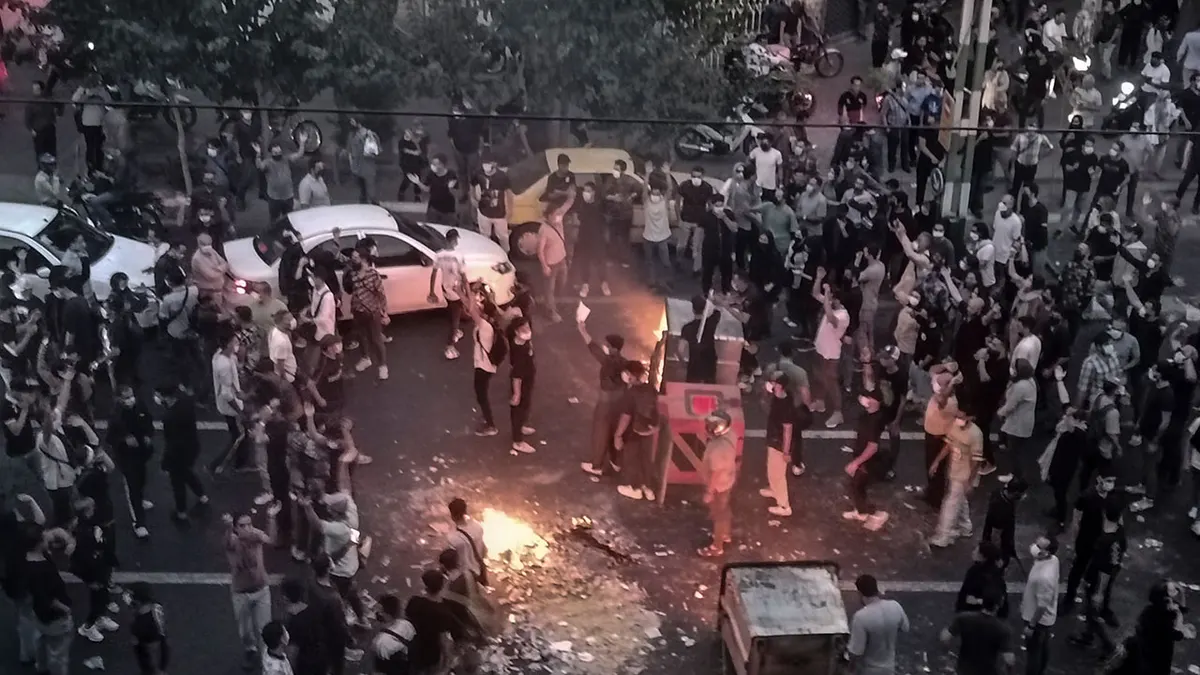
Iranians protest 22-year-old Mahsa Amini’s death after she was detained by the morality police, in Tehran, Iran, on Sept. 20, 2022. (AP Photo/Middle East Images, File)
«It will be bombing the likes of which they have never seen before,» President Trump told NBC News last weekend.
The U.S. expanded its deterrence efforts in the region, deploying additional squadrons of fighter jets, bombers, and predator drones to reinforce defensive air-support capabilities. The U.S. is also sending the USS Carl Vinson Carrier Strike Group to the region to join USS Harry S. Truman, which has been in the Middle East to fight against the Houthi’s in Yemen.
Iran’s supreme leader, Ali Khamenei, responded with threats of his own and said that Iran would respond «decisively and immediately» to any threat issued by the U.S. Iran is still floating the idea of indirect talks, something the administration is reportedly considering.
WALTZ TELLS IRAN TO GIVE UP NUCLEAR PROGRAM OR ‘THERE WILL BE CONSEQUENCES’
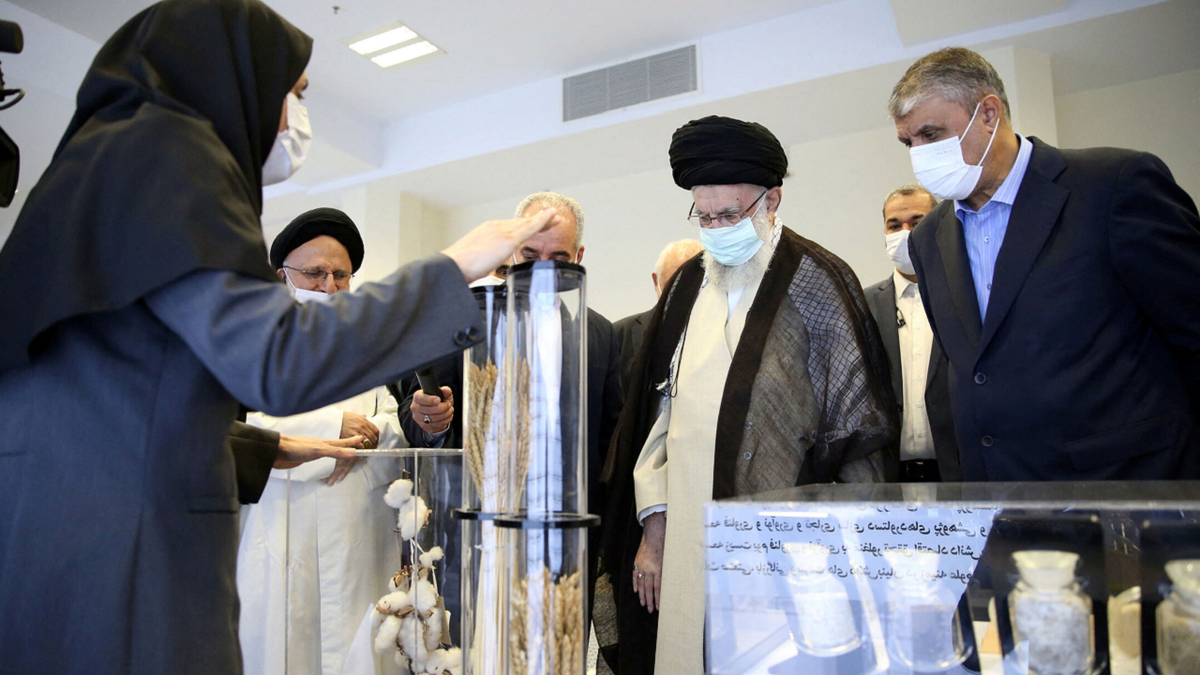
Iran’s Supreme Leader Ayatollah Ali Khamenei views Iranian nuclear achievements on Sunday, June 11. (Office of the Iranian Supreme Leader/WANA/Reuters)
Taleblu said, «Tehran’s counteroffer of indirect talks is the regime’s way of rejecting Trump while leaving the door open for talks that can be used as a shield against a potential preemptive attack.»
The president sent a letter to Khamenei expressing interest in making a deal on the nuclear issue. While increasing its military presence in the region, reports indicate that the Trump administration is considering indirect talks with Iran to curb the expansion of its nuclear program and avoid a direct confrontation.
Experts and observers of the region warn that Iran has used negotiating as a delaying tactic in the past and warn the Trump administration against entering into talks that might further embolden Iran.
«The Trump administration should impose full pressure on the regime in Iran given how weak the regime has become in the last several years. Indirect talks are the regime’s strategy of buying time so it can live to fight another day,» Alireza Nader, an independent analyst in Washington, D.C., and expert on Iran, told Fox News Digital.
Nader’s recommendation to Trump is to support the people of Iran and argued that the regime is much weaker than it appears.
«President Trump really wants a deal. Iran has a chance here to go back and negotiate, keep its civilian nuclear program but make concessions about its size and the duration of a deal,» Alex Vatanka, senior fellow at the Middle East Institute, told Fox News Digital.
«Trump is in a dominant position. Republicans in Congress fear him. Nothing can stop him—at least for now. But power is fickle. The longer he’s in the White House, the more vulnerable he may become. Iran shouldn’t wait for that,» Vatanka added.
PRESIDENT TRUMP CAN STOP IRAN’S MARCH TO NUCLEAR WEAPONS: ‘RE-ESTABLISH CREDIBLE MILITARY THREAT’, REPORT SAYS
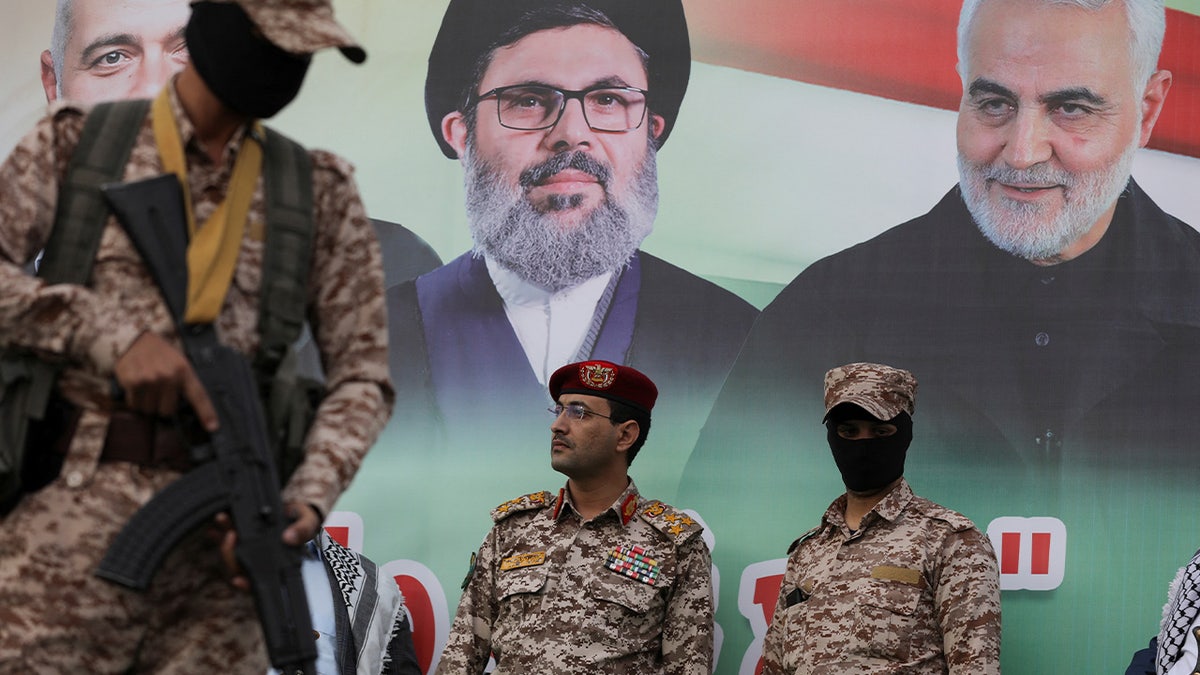
Houthi military spokesman Yahya Sarea attends a rally held by protesters, mainly Houthi supporters, to show support for Lebanon’s Hezbollah and Palestinians in the Gaza Strip, in Sanaa, Yemen, on Nov. 22, 2024. (REUTERS/Khaled Abdullah)
In an interview with Mark Dubowitz of the Foundation for the Defense of Democracies podcast, «The Iran Breakdown,» former Israeli Prime Minister Yair Lapid said that eventually, Israel will attack Iran’s nuclear facility, with or without the United States, because there is no other choice, according to Lapid.
Ali Larijani, an advisor to the supreme leader, said in an interview that although Iran does not seek a nuclear weapon, Tehran will have no choice but to build a nuclear weapon if the U.S. or Israel strike Iran.
The International Atomic Energy Agency reported in February that Iran has accelerated its nuclear program and has enriched uranium close to weapons-grade levels.
Danielle Pletka, senior fellow in Foreign and Defense Policy Studies at the American Enterprise Institute (AEI), told Fox News Digital that having additional military assets in the Middle East is sound policy given the threats that the U.S. and its allies face in the region.
For Pletka, the question is, what is the Trump administration looking for?
«A deal in which the Iranians do not fully get rid of their nuclear weapons program? If so, the president sets the United States up for the risk that Barack Obama inflicted on our allies and ourselves – merely delaying the Iranian nuclear program to a later date,» Pletka told Fox News Digital.
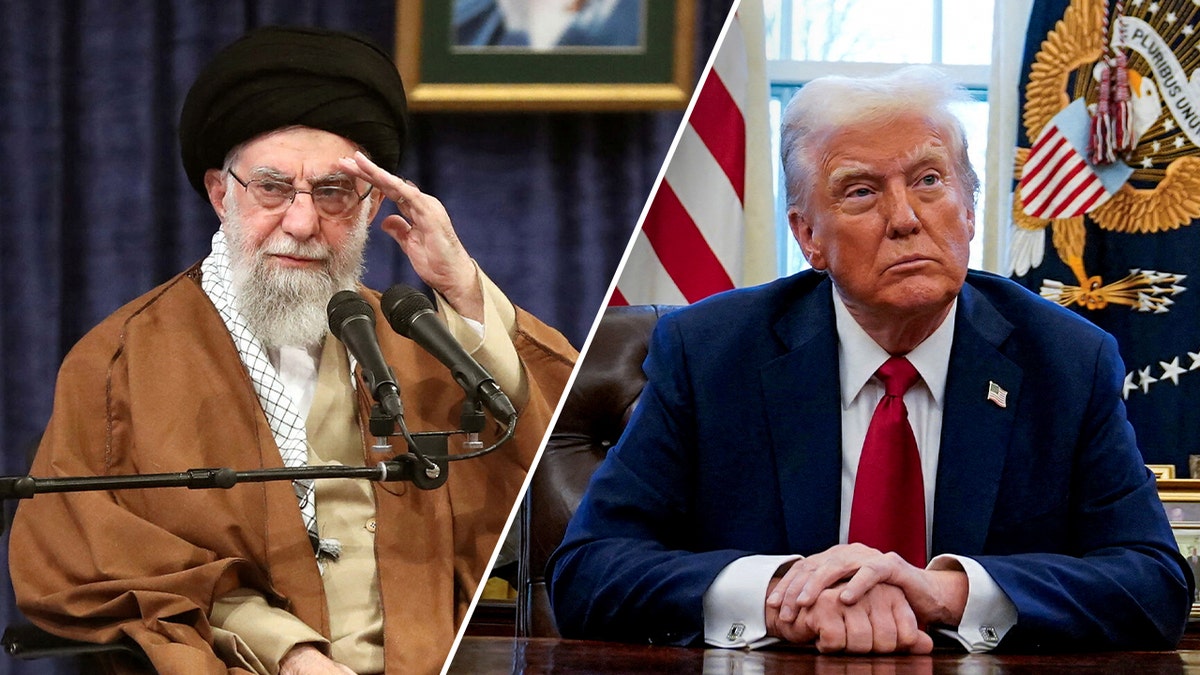
Iran’s Supreme Leader Ayatollah Ali Khamenei, left, and President Donald Trump. (Office of the Iranian Supreme Leader/WANA (West Asia News Agency)/Handout via REUTERS/Elizabeth Frantz/File Photo)
Pletka said it is strange that President Trump seems to envision a Joint Comprehensive Plan of Action (JCPOA)-like deal, and that has prompted a lot of criticism on Capitol Hill.
Trump originally withdrew from JCPOA, also known as the Iran nuclear deal, during his first term in 2018 and reapplied harsh economic sanctions. The Biden administration had initially looked at re-engaging with Iran on the nuclear issue upon taking office, but on-again-off-again talks went nowhere, complicated by Iran’s domestic politics and its role in supporting its terror groups in the region.
The other risk that the president runs, according to AEI’s Pletka, is being perceived as a paper tiger.
«He threatened Hamas with bombing that he never delivered. Now he’s threatening Iran with military action. But does he really mean it? Or is he just blowing hot air?» she said.
CLICK TO GET THE FOX NEWS APP
Pletka said, «There is an enormous amount of uncertainty around the president’s intentions, and that uncertainty is an opportunity for the Iranians to exploit.»
The Middle East Institute’s Vatanka said he believed that Trump could claim a potential win he can sell at home and say he got a better deal than President Obama did with the JCPOA, if Iran were to agree to permanently keep its enrichment level to a low level, unlike the expiration dates included in the JCPOA.
INTERNACIONAL
In warning to Turkey, Israel hits strategic targets in Syria amid rising tensions

Israel launched a wave of airstrikes on Syrian military airfields this week, in what officials confirmed to Fox News Digital was «intended to send a clear message to Turkey not to interfere with Israeli aerial operations in Syrian airspace.»
The escalation marks a turning point in Jerusalem’s stance toward Ankara, as Turkey attempts to expand its military presence in Syria amid regional instability.
The Israeli Defense Forces struck strategic assets at both the Hama military airport and the T-4 airbase, including runways, fuel storage sites, radar systems and weapons caches. The strikes follow weeks of intelligence gathering by the Israeli air force, which tracked military assets in the targeted bases.
The airbases, which had been under the control of Syrian President Bashar al-Assad’s regime, are now reportedly being eyed by Turkey for expanded use and the deployment of air defense systems.
ECHOING HAMAS, ERDOGAN REPORTEDLY CALLS FOR ISRAEL’S DESTRUCTION AMID PUSH TO REKINDLE TIES WITH TRUMP
Chief of the General Staff LTG Eyal Zamir visited and conducted a situational assessment in the Area of Separation in Syria. (IDF)
Turkey has signaled growing ambitions in Syria. Reports from Middle East Eye indicate that Turkish forces have begun moves to take control of the T-4 base and are planning to install air defense systems there. Since the fall of Assad in December, Ankara has accelerated negotiations with Syria’s interim government over a potential defense pact.
Turkey’s Foreign Ministry reacted sharply to the Israeli strikes, labeling Israel’s government as «racist and fundamentalist,» accusing it of expansionist ambitions. «Israel’s attacks in Syria, without any provocation, are inconceivable and indicate a policy that thrives on conflict,» a ministry spokesperson said. The statement further condemned Israel’s military operations as a threat to regional security.
Fox News Digital requests for comment to the Turkish embassy spokesman in Washington, D.C., were not returned.
Dr. Sinan Ciddi, a Turkey expert at the Foundation for Defense of Democracies, told Fox News Digital that Turkish President Recep Tayyip Erdogan is attempting to capitalize on the regional vacuum left by Russia and Iran.
TURKEY’S ERDOGAN CONTINUES CRACKDOWN ON PROTESTERS FOLLOWING ARREST OF MAIN RIVAL ON CORRUPTION CHARGES

Turkish President Recep Tayyip Erdogan observes a military exercise in Izmir, Turkey, on June 9, 2022. (Photo by Xinhua via Getty Images)
«Erdogan is trying to reignite Turkey’s influence in the region as a sort of neo-Ottoman power,» said Ciddi. «He sees Iran’s proxies weakened, Russia overstretched, and is positioning Turkey to dominate the region — particularly through military footholds like the airbases.»
Ciddi said Erdogan’s long game includes projecting power in Syria, currying favor with the new government in Damascus and convincing the U.S. to grant Turkey access to F-35 fighter jets in exchange for «managing» Syria.
«Erdogan wants to go to Trump and say, ‘I’m the big guy here. Leave Syria to me, just give me the F-35s,’» Ciddi said. «But Israel sees this as a direct threat. Bombing the T-4 runway was a clear message: you’re not welcome here.»
The Turkish leader’s recent inflammatory rhetoric — including prayers for the destruction of Israel during a Ramadan service — has further alarmed Israeli and American observers.
During a recent webinar hosted by the Jewish Institute for National Security of America (JINSA), former U.S. Ambassador to Turkey Eric Edelman called for urgent diplomatic intervention.
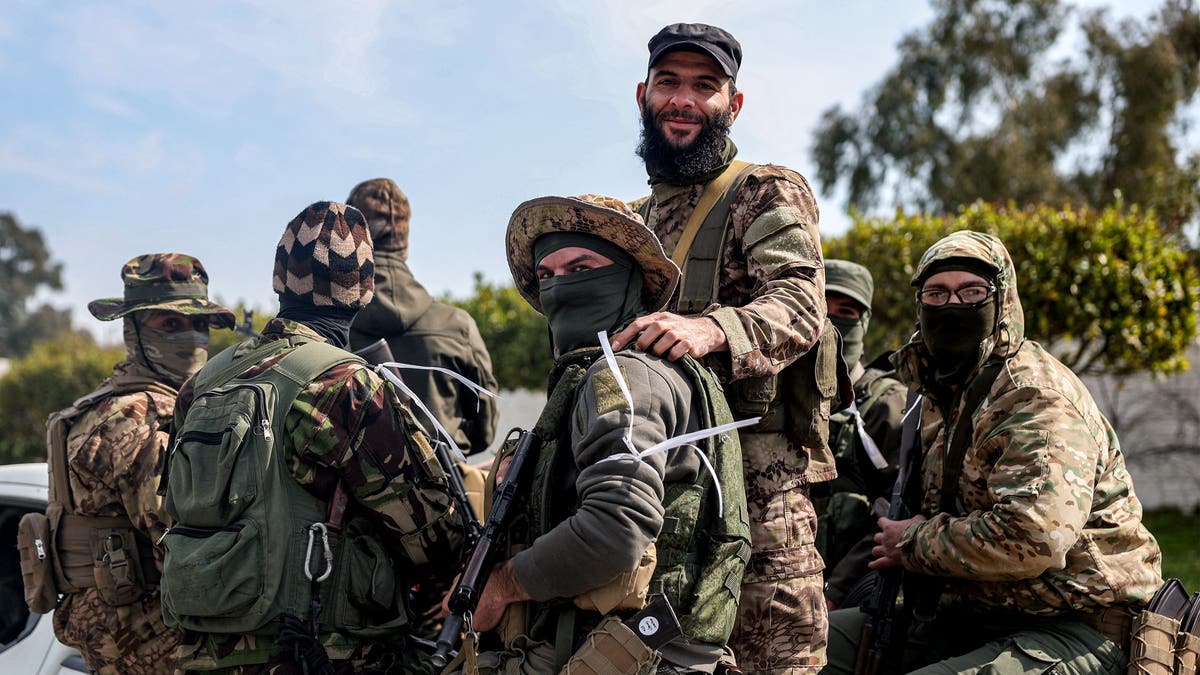
Security forces loyal to the interim Syrian government ride in the back of a vehicle moving along a road in Syria’s western city of Latakia on March 9, 2025. (OMAR HAJ KADOUR/AFP via Getty Images)
«There ought to be some quiet discussions with Turkey about toning down the rhetoric about Israel — threats to destroy it, whether coming from the president or his son at rallies,» said Edelman. «There needs to be some kind of effort to deconflict over Syrian airspace.»
Edelman also warned that renewed F-35 sales to Turkey must come with conditions: «If Turkey is actually going to possess the F-35, there has to be some very clear understandings about where they can use it.»
TRUMP EYES LIFTING SANCTIONS, POTENTIAL SALE OF PRIZED FIGHTER JET TO TURKEY
Alan Makovsky, JINSA Eastern Mediterranean Policy Project member said, «We can never assume statements like this are just rhetoric,» adding, «Erdogan has alluded in the past to being able to ‘come suddenly one night’ — we have to take that seriously.»
Inside Israel, officials are closely watching Turkey’s moves in Syria. Avner Golov, vice president of Mind Israel, emphasized that the current crisis reflects a deeper ideological threat.
«Iran is clearly the head of the radical camp, but Erdogan is trying to position himself as the second head — and he’s no less dangerous in terms of potential,» he said. «He doesn’t use proxies the same way Iran does. He intervenes directly, including inside Israel through Palestinian citizens and political activism.»
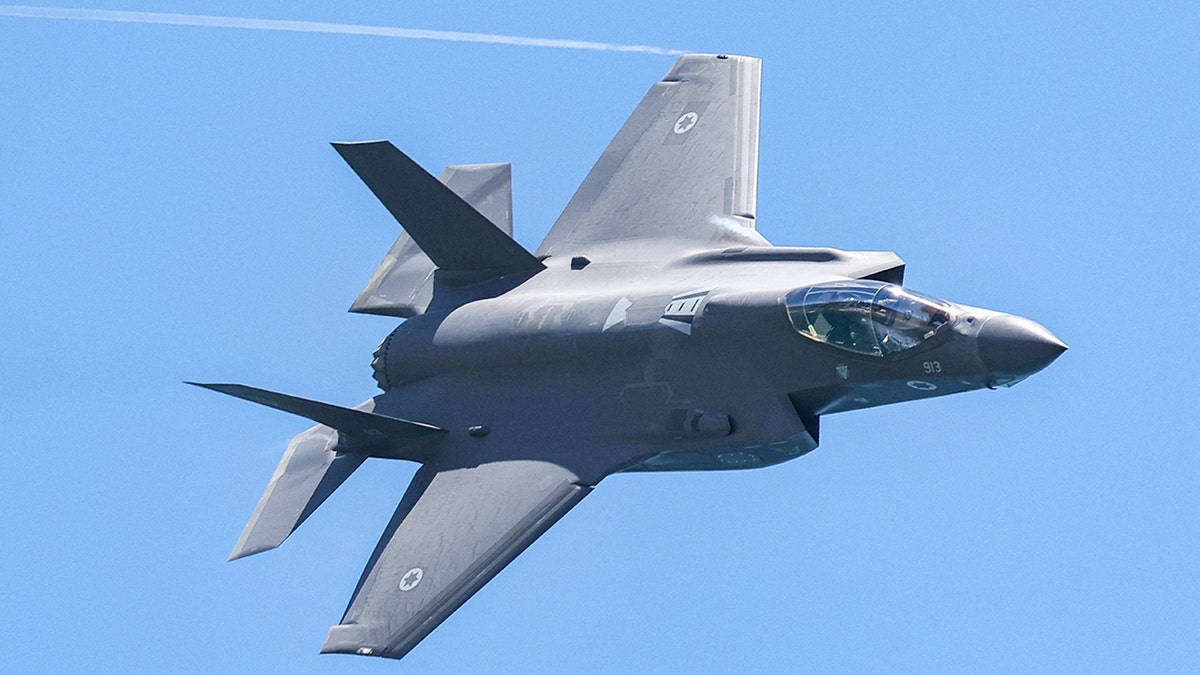
An Israeli Air Force F-35 Lightning II fighter aircraft during an air show in Tel Aviv on April 26, 2023. (JACK GUEZ/AFP via Getty Images)
«Israel has diplomatic ties with Turkey, but Erdogan keeps blocking meaningful security cooperation in NATO» Golov added. «Now that Turkey is moving south into Syria, we [Israel] need to escalate the rules of engagement. We can’t allow Turkey to create a long-range air defense umbrella on our border.»
Golov said the current administration needs to understand that Erdogan’s ambitions go beyond Syria. «He wants to become a patron state, to control the skies, and to prevent Israeli operations by claiming we’re violating Syrian sovereignty. But it’s not about sovereignty — it’s about power and shaping the new Middle East in Muslim Brotherhood colors.»
CLICK HERE TO GET THE FOX NEWS APP
On the recent protests against the jailing of the mayor of Istanbul, Ciddi said, «We’ve seen a great challenge to Erdogan with these rising public protests — probably the biggest since the 2013 Gezi protests … jailing an opposition candidate before they even run is a clear sign of weakness. Erdogan doesn’t care about international criticism or economic fallout — all he cares about is maintaining his regime. That’s not strength, it’s desperation.»
-

 POLITICA2 días ago
POLITICA2 días agoDesde Ushuaia, Villarruel convocó a un “proceso de malvinización” en medio de los “discursos de odio”
-

 CHIMENTOS3 días ago
CHIMENTOS3 días agoAparecieron las cartas de amor que José Alperovich le escribe a Marianela Mirra desde la cárcel: “Quiero jugarme la vida con vos”
-

 ECONOMIA3 días ago
ECONOMIA3 días agoLuis Caputo cruzó a Ricardo López Murphy y defendió el plan económico del Gobierno

















